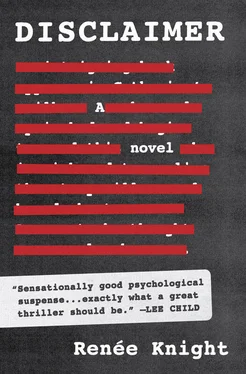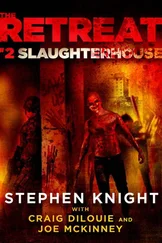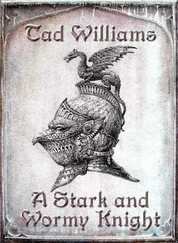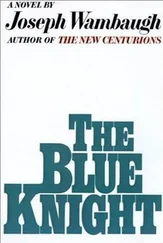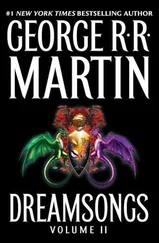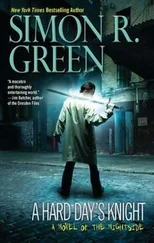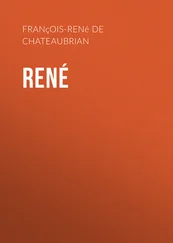Renée Knight - Disclaimer
Здесь есть возможность читать онлайн «Renée Knight - Disclaimer» весь текст электронной книги совершенно бесплатно (целиком полную версию без сокращений). В некоторых случаях можно слушать аудио, скачать через торрент в формате fb2 и присутствует краткое содержание. Год выпуска: 2015, Издательство: Harper, Жанр: Современная проза, на английском языке. Описание произведения, (предисловие) а так же отзывы посетителей доступны на портале библиотеки ЛибКат.
- Название:Disclaimer
- Автор:
- Издательство:Harper
- Жанр:
- Год:2015
- ISBN:нет данных
- Рейтинг книги:3 / 5. Голосов: 1
-
Избранное:Добавить в избранное
- Отзывы:
-
Ваша оценка:
- 60
- 1
- 2
- 3
- 4
- 5
Disclaimer: краткое содержание, описание и аннотация
Предлагаем к чтению аннотацию, описание, краткое содержание или предисловие (зависит от того, что написал сам автор книги «Disclaimer»). Если вы не нашли необходимую информацию о книге — напишите в комментариях, мы постараемся отыскать её.
recreates in vivid, unmistakable detail the terrible day Catherine became hostage to a dark secret, a secret that only one other person knew-and that person is dead.
Now that the past is catching up with her, Catherine’s world is falling apart. Her only hope is to confront what really happened on that awful day even if the shocking truth might destroy her.
Disclaimer — читать онлайн бесплатно полную книгу (весь текст) целиком
Ниже представлен текст книги, разбитый по страницам. Система сохранения места последней прочитанной страницы, позволяет с удобством читать онлайн бесплатно книгу «Disclaimer», без необходимости каждый раз заново искать на чём Вы остановились. Поставьте закладку, и сможете в любой момент перейти на страницу, на которой закончили чтение.
Интервал:
Закладка:
He can’t resist reading the last line first. He agrees with it. It really is “ a pity ,” these omissions of his wife, her “ omission ” to tell him anything. She only wants to talk now because she’s been cornered. He admires the restraint in the language but can’t share it. It’s more than a fucking pity. “ Deadly? ” An idle threat. He feels no need to protect her.
Last night she tried to convince him that the book was not how it had been. It hadn’t happened like that. But he couldn’t listen to her; he couldn’t stand the sound of her voice. It was fake. Everything about her felt fake. Of course she would say that and, as far as he’s concerned, she’s lost her chance to give him her version. He can only trust this printed word. She had her chance years ago and now he can’t believe anything she says because he knows it will be nuanced. She will try anything to excuse the inexcusable. And it is inexcusable, because of Nicholas. Because he was there.
Less than a week ago it would have been a luxury to have hours to sit in a café and read a book, but now it makes his mouth dry and his fingers shake. He flips back to the first page:
Victoria station on a grey, wet Thursday afternoon. The perfect day on which to escape. Two young people queued at the ticket office, clutching at each other’s hands, then letting go again, but not for long. They couldn’t bear not to be connected for more than a couple of minutes…
It is not the sort of book Robert would normally read, but now, in these circumstances, it is a real page-turner. He can see why it might have attracted Nicholas and why he would have kept reading. It is easy, fluid and light, about a young man, younger than Nicholas, who travels across Europe with his girlfriend. Robert reads of their anticipation and sense of adventure. They have thrown in their jobs to go travelling, determined not to squander their youth. Two people still young enough to travel on a young person’s railcard. The smell of trains at night; waking in the morning and arriving in another country; pulling down the window and breathing in Mediterranean skies as they speed through landscapes of freedom. They are in love. They are meant to be together.
What seeps through the airy text, and what Robert imagines had kept Catherine from dismissing the book after the first few chapters, is the slow-coming dark of tragedy. This paradise will be short lived. All the good things — the smells, the tastes, the heat — are tinged with the threat that they cannot last. By the time Robert has moved from tea to coffee and the couple have arrived in Nice, bad news from home pulls the girlfriend, Sarah, back to England. John, her boyfriend, says he’ll return with her but Sarah will not hear of it. She knows how much this trip means to John; how long he has thought about it, planned for it, saved for it. Sarah is the sort of girl every parent would like their son to be with. There is a tearful farewell at Nice station. John buys a postcard and sits in a café to write to his parents. He buys a pack of Gauloise and smokes one. Sarah doesn’t like smoking. Even his parents don’t know that he smokes. He buys a stamp, posts his card, and then continues his journey alone. So now it starts, thinks Robert, and he orders black coffee.
26. SUMMER 2013
We were definitely the odd ones out at the airport. Perhaps that’s just how it felt, and others didn’t notice, but I suspect the more perceptive traveller would have spotted the middle-aged couple, red eyed, looking in desperate need of a holiday, but who also appeared to be dreading getting on the plane. They might have assumed fear of flying. But it was fear of landing which afflicted Nancy and me — the fear of it all becoming real. So far all we had been able to do was imagine. Now we must look at the body of our son who had gone ahead and experienced something which he should have waited for us to do first.
Before we left for the airport, I had taken down from the dresser the three postcards Jonathan had sent us. Paris, Nice, Seville. Glossy and bright. Dashed-off words, which carried little weight when first read, but then were scrutinised over and over. The one from Seville was the final one we received: the cathedral bathed in sunshine and tourists being pulled in a horse-drawn carriage in the foreground. How could these tourists know their image would be frozen forever in our heads? That when that postcard landed on our doorstep, we would see them, then turn them over and read the words which were to become the last words we ever had from our son:
Dear Mum and Dad, have spent two days here, but heading to the coast tomorrow. Want to get the ferry to Tangiers. Love, J xox
Neither of us spoke Spanish but the consulate in Jerez helped us through the bureaucracy. Of course there was a lot of it. Certificate after certificate which needed to be signed, stamped, handed over to various authorities before we would be allowed to take our boy home.
It had been many years since we had seen Jonathan naked, but he was nearly naked when we looked at him lying there, with only a cloth to cover his genitals. He was perfect. Preserved in death, his eyes closed, and unmistakeably our son. The consulate had informed us he would be embalmed — Spanish law insists on it before a body can be transported. I understood the technicalities of the embalming process, we both did, but neither of us wanted to think too much about it.
Jonathan had drowned, but his face wasn’t swollen the way I had expected it to be. There was a mark running along the inside of his left arm. I traced it with my fingers, stroking the cold flesh along a purple line which crossed with another. An injury he sustained, we were told, during the accident.
I cried, as quietly as I could, but I did cry. Nancy shook. Tremors ran through her whole body, not just her shoulders. She was not shaking with sobs. This was prolonged, lengthy. Something had ruptured inside her, sending wave after wave of shock through her. It was as if she had been plugged in and couldn’t be switched off. I put both my arms around her to try and steady her but I couldn’t. And the worst thing about it was her silence. Absolute silence. I tried to pull her away and get her out of the room, but she wouldn’t move. She leaned forward and took Jonathan’s hand. It was stiff. It wouldn’t curl around hers anymore. We saw his palm was purple and scuffed, the skin ripped and burned, where he had held on to something. He must have held on for dear life. Nancy sank to her knees and kissed his poor hand and I put both mine on her shoulders. The man from the consulate shuffled. There was no doubt this was our son but we still needed to sign a piece of paper to confirm it. He thought it was time for us to leave, I could tell, but I must have looked helpless so he came over.
“Mrs. Brigstocke, Mrs. Brigstocke, we can go now.”
I was relieved that she ignored him, it left me some space in which to act. I pulled her hand from Jonathan’s and put it in mine.
“Nancy, come on, darling.” And finally she let me lead her from the room. The consulate had organised a car to take us to the seaside town where Jonathan had died. I didn’t really think about whether we would have to pay for any of it. We did, as it turned out. Jonathan’s travel insurance didn’t cover it.
We drove in silence from Jerez to Tarifa, sweating in the back of the car. The first thing Nancy wanted to do when we arrived was go to the beach. I asked the driver to wait. It was too hot. Midday. There was no shelter, nowhere to escape the hot, white sun. It was the largest beach we had ever been to, miles and miles of white sand. It was a desert, except there were crowds of people there. Hoards, burning, glistening in oil. We were the only ones fully clothed, and our shoes sank into the sand and I wondered whether to take mine off and walk barefoot, but Nancy marched on so I followed. She headed in a straight line to the sea, her hand holding her hat onto her head. The wind whipped around us and I squinted to stop the sand getting into my eyes. It was a hostile place. It took fifteen minutes for us to reach the edge of the water and then we stood there and stared out. It was like staring into space; I could see no end to it. The wind played on the water, teasing it into white froth, but there were children playing in there and windsurfers helped along by the wind. To them it was a friendly place. The top of my head was burning and I imagined how the skin would blister, then peel in a few days. I couldn’t stand it and put a hand on Nancy’s arm but she shook me off. She was not ready to leave. I felt ashamed that I had shown weakness. I looked behind me and wondered which patch of beach Jonathan had lain on. I wondered whether he had tried windsurfing. When I turned back Nancy was taking off her shoes. She hitched up her skirt with one hand and held out her other for my hand. I took off my socks and shoes, rolled up the bottom of my trousers, and stepped into the water with her. We stood there for a few moments and then I saw her close her eyes. I closed mine. “Good-bye, Jonathan,” I said in my head and imagined her doing the same. Then we left and got back into the car and drove to Jonathan’s hotel.
Читать дальшеИнтервал:
Закладка:
Похожие книги на «Disclaimer»
Представляем Вашему вниманию похожие книги на «Disclaimer» списком для выбора. Мы отобрали схожую по названию и смыслу литературу в надежде предоставить читателям больше вариантов отыскать новые, интересные, ещё непрочитанные произведения.
Обсуждение, отзывы о книге «Disclaimer» и просто собственные мнения читателей. Оставьте ваши комментарии, напишите, что Вы думаете о произведении, его смысле или главных героях. Укажите что конкретно понравилось, а что нет, и почему Вы так считаете.
